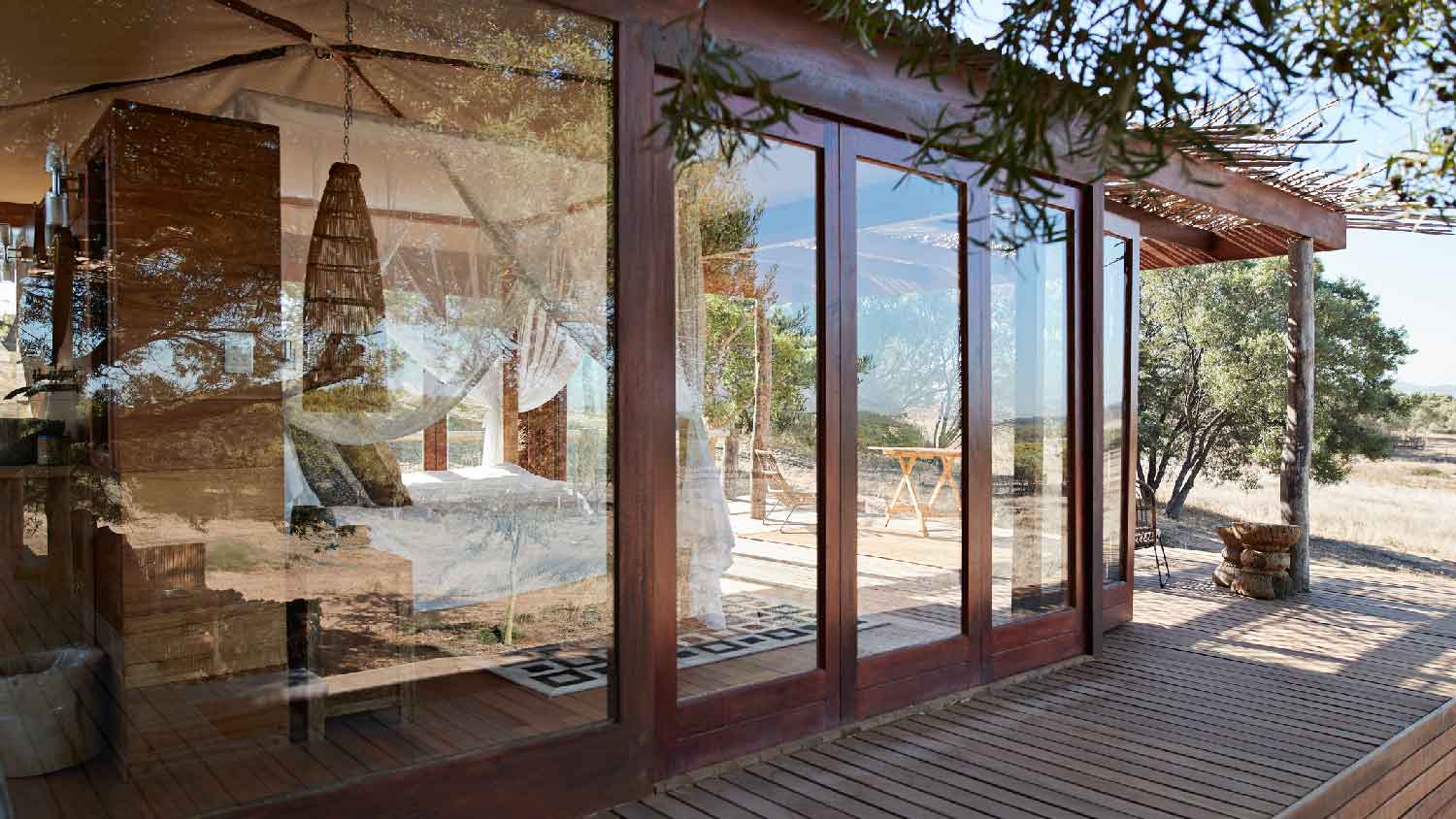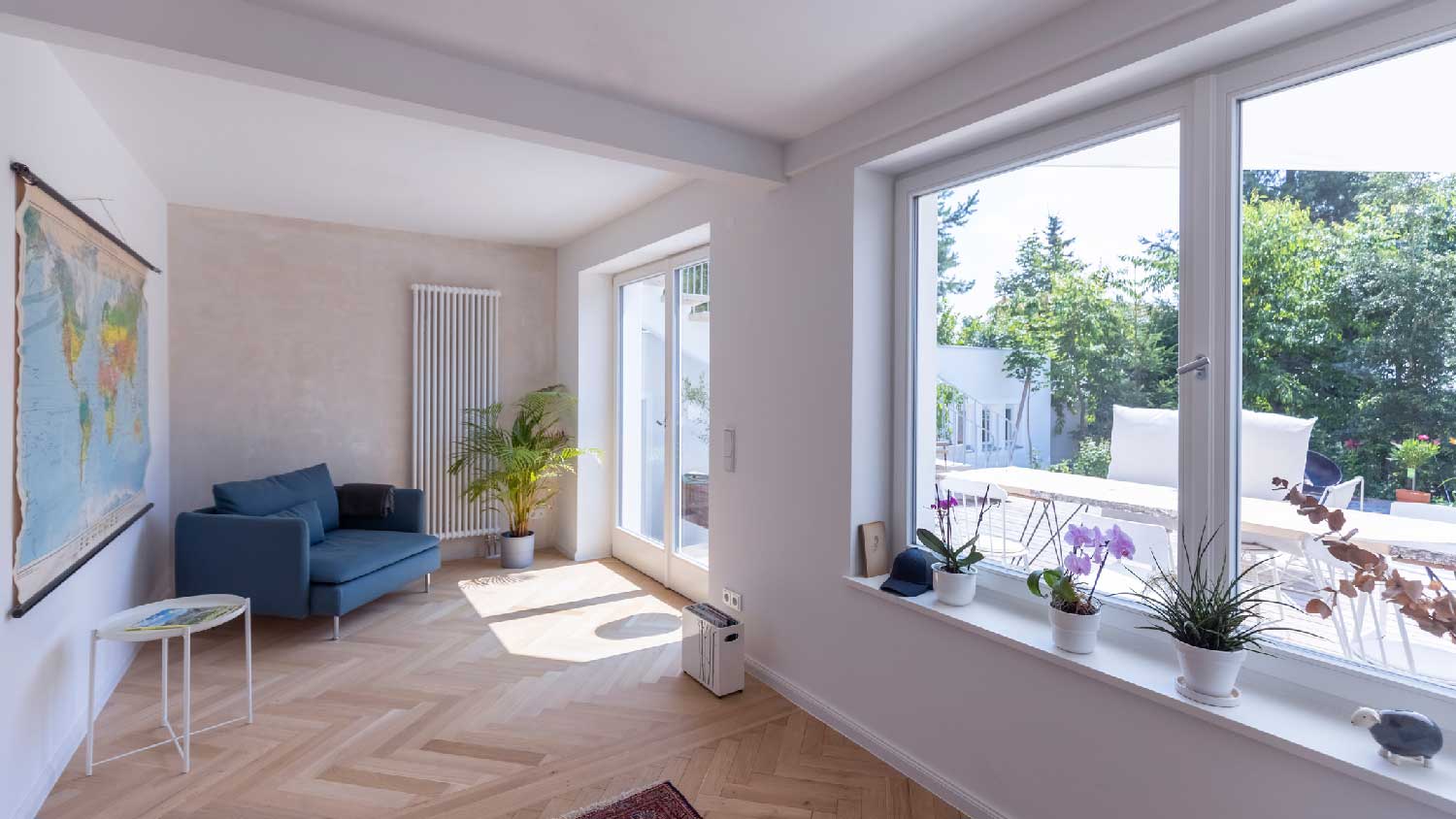Wood vs.Vinyl Windows: What’s the Difference?
Shine some light on your window options


Wood windows provide good insulation and a timeless look.
Vinyl windows are affordable and low-maintenance.
Both types of windows can last 20 years or more.
You may think a window is a window, but there are actually many different types of windows out there. Depending on your personal style, budget, and where you live—among other factors—the right window for you varies. In this article, we compare wood vs. vinyl windows to see how these two popular options stack up.
Wood Windows vs. Vinyl Windows: Key Differences
When comparing these two types of window frames, the key differences are related to price, aesthetics, maintenance, and durability.
Wood windows require more consistent maintenance compared to vinyl windows and also cost more. But, they’re durable and have a timeless appeal. On the other hand, vinyl windows are more affordable and easier to maintain but don't provide the same curb appeal that wood windows do.
Outside of price, different window materials have different levels of insulation and energy efficiency. A window pro can guide you through the different features to pick the best option for your budget.
What Are Wood Windows?

A timeless choice, wood windows are made from a variety of wood species, including pine, Douglas fir, and mahogany. They’re durable and they’re good insulators, but wood windows need routine maintenance and must be resealed and/or repainted periodically. Clad wood windows, which are covered on the exterior with a material such as vinyl or aluminum, have fewer maintenance requirements.
| Pros | Cons |
|---|---|
| Aesthetically pleasing | Can be costly |
| Provide good insulation | Require regular upkeep |
| Durable | Can swell or warp from humidity |
Best for:
Curb appeal
Homeowners who want to customize the look of their windows
Pros of Wood Windows
With their classic good looks, wood windows are a natural fit for historic houses but can elevate the look of any home. Wood windows are also strong—they can last 30 years or more with proper upkeep—insulating, and versatile, giving homeowners lots of design options.
Cons of Wood Windows
The cost to install wood windows is higher than that of vinyl windows. And once installed, wood windows require consistent maintenance—including regular repainting and/or resealing—to make sure they remain in good condition. This level of upkeep can be both time-consuming and expensive. Wood can also expand and warp if exposed to humidity or moisture, making the windows difficult to open and close.
What Are Vinyl Windows?

Vinyl windows are primarily made of polyvinyl chloride (PVC). Likely due to their low cost, vinyl windows are among the most common you’ll see in homes. They also have a long lifespan and don’t require much maintenance, which helps make up for their aesthetic shortcomings.
| Pros | Cons |
|---|---|
| Affordable | Not as stylish |
| Low-maintenance | Not the most eco-friendly |
| Energy-efficient | Usually not as strong as wood |
Best for:
Tight budgets
Homeowners with limited time for maintenance
Pros of Vinyl Windows
Not only do vinyl windows last approximately 20-40 years, they don’t require much upkeep. Additionally, they tend to be a more affordable option both in their lack of maintenance requirements and low upfront cost.
Cons of Vinyl Windows
While vinyl windows don’t look bad on a house, they do lack the unique aesthetic appeal that other options like wood windows give you. Essentially, they’re a bit more plain. Additionally, while vinyl windows have energy-saving features, they’re not the best for the environment when it comes to manufacturing due to the chemicals needed to make them. And vinyl is typically not as durable as wood—it can warp if exposed to heat or direct sunlight and crack in very cold temperatures.
Wood Windows vs. Vinyl Windows

Now that you know a bit more about these two types of windows, here’s a closer look at how they compare in some key categories worth considering when deciding which is best for your home.
Appearance: Wood Windows
When it comes to appearance, wood windows take the cake. Wood windows have a unique aesthetic appeal that vinyl windows lack. Vinyl windows have a more plain look while wood windows have a timeless appearance that can also be customized by different wood types or paint.
Price: Vinyl Windows
In terms of cost, vinyl windows are more affordable than wood windows. On average, wood windows cost anywhere from $300 to $800 per window. On the other hand, vinyl windows cost an average of $150 to $500 per window. When purchasing windows, it's important to browse all the window companies near you to find the best price for whichever type of window you decide on.
Maintenance: Vinyl Windows
Vinyl windows require less maintenance than wood windows. Vinyl windows never require painting or sealing, for example, whereas wood windows will need to be repainted and sealed consistently throughout their lifetime.
Length of Life: Tie
On average, vinyl windows last about 20-40 years, while wood windows can last 30 years or more. If not having to replace windows sooner is a priority to you, choose a higher-quality brand with a good warranty.
Resale Value: Vinyl Windows
According to The National Association of Realtors’ Remodeling Impact Report, vinyl windows have a higher resale value than wood windows, with a 67% return on investment. That being said, wood windows are close with a 63% ROI.





- What Are Vinyl Windows? Your Guide to the Most Popular Window Frame
- Vinyl vs. Composite Windows: What’s the Difference?
- Vinyl vs. Aluminum Windows: Which Should You Choose?
- How to Choose the Best Replacement Windows for Old Houses
- Types of Old Windows and When to Replace Them
- The Pros and Cons of Fiberglass Replacement Windows
- Vinyl vs. Fiberglass Windows: Which Should You Choose?
- When to Replace Windows: 10 Signs That It’s Time to Start Shopping
- Storm Windows vs. Double Pane: What’s the Difference?
- What Are Low-E Windows? Check Out This Simple Energy Efficiency Improvement











